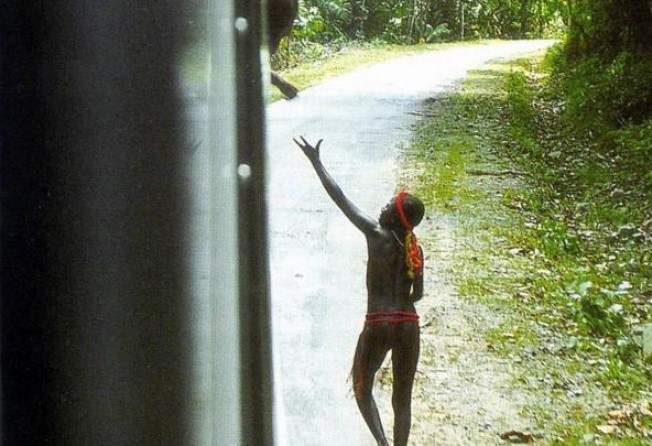
Activists slam return of human safaris in Andaman Islands
Court decision to reopen Andaman Trunk Road could lead to tourist influx into remote reserve that is home to the endangered Jarawa tribe

A controversial road in the Indian Andaman Islands is set to reopen to tourists this week, heralding the resumption of notorious "human safaris" to view the Jarawa tribe.
The move, which has been condemned by advocates for the tribe, comes after India's Supreme Court last week authorised the reopening of the 360-kilometre Andaman Trunk Road (ATR) that cuts through a reserve for the aboriginal Jarawa. Activists say the decision, overturning an interim closure imposed in January, threatens the survival of the endangered community.
Indian laws on the protection of aboriginal tribes make it illegal to photograph the Jarawa or interact with them, said Jarawa rights activist Denis Giles. But the law has been routinely flouted - in one incident in 2011, a policemen was filmed telling near-naked Jarawa girls to dance.
Giles said bus and cab drivers, ostensibly taking tourists to coastal caves down the road, stopped their vehicles inside the Jarawa reserve to let tourists interact with the tribe.
"The regulation was flouted as every day hundreds of tourists attracted Jarawa people with biscuits, sweets and other tobacco products. Male tourists ogled the naked Jarawa girls and women, and made them pose and dance for their cameras," said Giles, who edits the Andaman Chronicle, based in Port Blair, the Andaman capital. "The trips were nothing but human safaris to see the Jarawa people."
Giles said yesterday that the road was expected to reopen in "a day or two".
The Supreme Court's latest decision to reverse the ban on tourists travelling through the Jarawa reserve has come as a "huge blow to the campaign for the rights of the Jarawa tribe", said Sophie Grig of the UK-based indigenous rights advocacy group Survival International.
"It's hard to fathom how, once stopped, these disgraceful and degrading human safaris are going to be allowed to start up once again. For hundreds of tourists to come uninvited every day in order to ogle at the tribe, as a holiday excursion, is totally unacceptable and must not be allowed again," Grig said.
"We will now redouble our efforts to get the ATR closed and for an alternative route to be put in place as soon as possible."
The road connects Port Blair to Middle Andaman and North Andaman Islands.
The Jarawa, numbering up to 400, were one of the world's most isolated people and hostile to outsiders until about a decade ago, when younger tribe members began engaging with people along the road. Among their fellow Andaman tribes, only the Sentinel Islanders have managed to maintain their solitude, which is protected by law. Two fishermen who intruded on the island were killed by the Sentinelese in 2006 and when a helicopter was sent to retrieve the bodies, it was driven off in a hail of arrows.
While the activists say isolation of the Jarawa would help protect the tribe from modern threats, including disease, many others are seeking the assimilation of the tribe to mainstream society.
Last year, India's tribal affairs minister, V Kishor Chandra Deo, said that the Jarawa were living in "beastly conditions" and that it was unfair to leave them isolated.
But activists argue the Jarawa should decide their own fate.
"The Jarawa, not the authorities, should be able to control the amount and type of contact they have with outsiders, and to choose what, if any, changes they make to their way of life," a Survival report said last week.